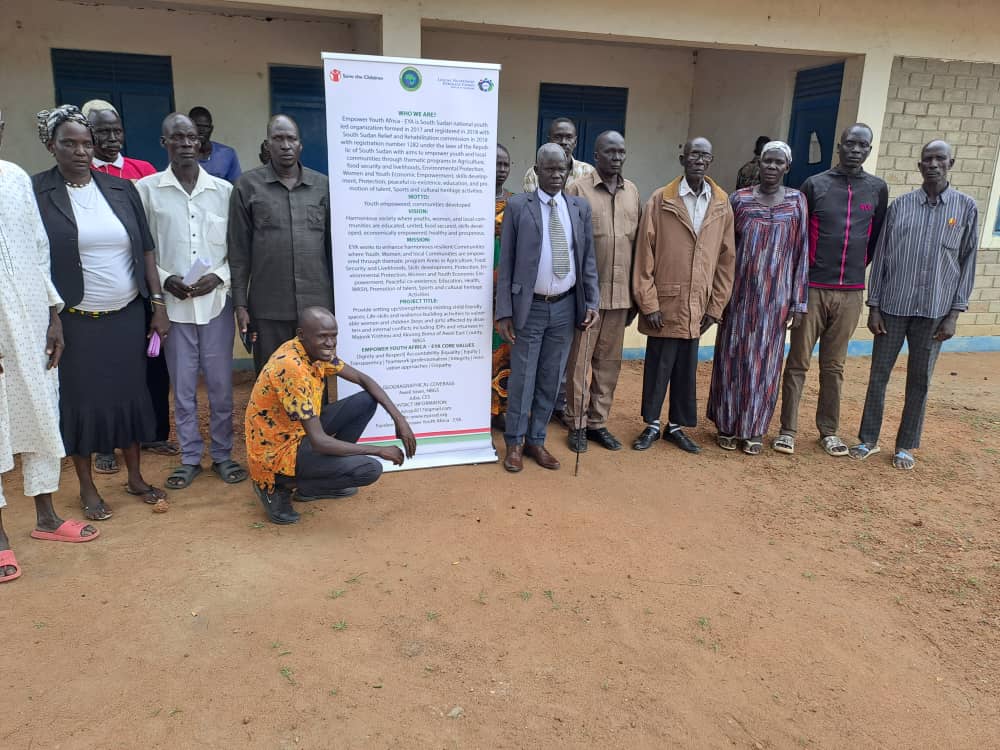
Sexual violence fueled by poverty, hunger in Aweil East

Gender-based violence (GBV) in Aweil East County of Northern Bhar El Ghazal State has been exacerbated by conditions such as high poverty levels, floods and hunger.
Women and girls face more early and forced marriages as families seek dowry payments and try to reduce their food bill.
One of the survivors of GBV in Aweil East, who often receives treatment in Malualkon- one stop center for GBV management run by International Rescue Committee, said she endured numerous beatings from her estranged husband.
The woman’s crime had been to refuse her under-age daughter to be married off.
“I disagreed with my husband, I told him not to marry off our daughter while still young, and that’s why he beat me, I really appreciate the IRC and UNFPA for their support they gave me, they have taken good care of me, they have treated me and gave me psycho-social support and also they transferred me to World Vision and they are now giving me some food and cash,” said the victim of GBV who spoke to The Juba Echo last week on condition of anonymity.
Another teenager who is a rape survivor said she received treatment and counselling services from the same health facility in Malualkon.
The health center is run by IRC with support from the United Nations Population Fund (UNFPA).
European Union Humanitarian Aid (ECHO), Sweden and Norway are the funders of the project.
“I am now able to talk to people, what I want to tell UNFPA is to create awareness on GBV in the area, many of my sisters are still suffering, they fear to come to hospital for treatment,” said the rape survivor.
Since January to October this year about 334 of GBV cases have been recorded and given treatment in Malualkon center.
GBV victims in Aweil East are calling on the government in Juba to come up with laws that will not severely punish perpetrators.
A 22- year- old survivor, who was raped by 6 people, said that in Malualkon health center she recovered after receiving clinical treatment for rape, psychological first aid, counselling and other services.
She said that it wasn’t easy for her to reach the center but with help of her parents, she was brought to hospital and given the needed assistance.
Dr. Kur Bol Mayen Director of Malualkon Primary Healthcare Center said that since January to date they have treated more than 300 cases of GBV that included rape, physical assault, and sexual harassment.
“We thank UNFPA and other partners for their support, without them we would not be able to manage these cases here, I would like them also to open up training center for these survivors such that they are trained on life skills to support them in the community,” said Mayen.
He said that cases are rampant in the area and they are busy 24 hours giving support to victims.
Akot Angui Akot, Director of Gender in the Ministry of Gender, Child and Social Welfare in Northern Bhar El Ghazal State, said that force marriages are on the rise in the state, adding that people are marring off their daughters because of poverty.
He said they have so far recorded 68 cases of forced marriage in the ministry which they are currently following up.
Akot said they will soon be undertaking public awareness campaign on early and forced marriages in the state.
Mamer Deng, paramount chief of Malaulkon, said that effects of floods now have affected their efforts to move around and sensitize people on the dangers of GBV.
Deng said that many families lack access to food and basic shelter as resulting from the impacts of GBV and heavy flooding since the start of the rainy season this year.



































